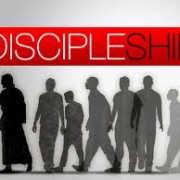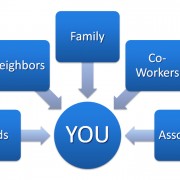“And the Word became flesh and dwelt among us…No one has seen God at any time. The only begotten Son, who is in the bosom of the Father, He has declared Him.”[1] – John the Baptizer speaking of Jesus
“Ritualism is nothing more than a rut, and the only difference between a rut and a grave is the length and depth.”[2] – Chuck Smith
Something that has always existed in the Calvary Chapel Movement is the practice of what is known as contextualization. The basic idea behind contextualization is allowing people and churches to express devotion to the core non-negotiable elements of Christianity in ways that are natural to their cultural background.
Contextualization and Calvary Chapel
Calvary Chapel did this during the Jesus Movement of the 1960’s and 1970’s. At a time when most people wore suits to church and sang only hymns in their services, Calvary Chapel allowed the thousands of hippie kids who were coming to Christ to come to Jesus and the church just as they were. Pastor Chuck wouldn’t allow the kids to feel as if they had to take a shower, put on a suit, and start learning hymns if they wanted to follow Jesus. Instead, he allowed them to come into Calvary Chapel Costa Mesa in their bare-feet, dirty clothes, and eclectic styles. They let the kids express their love for Jesus in new songs they were writing in different musical styles than the old hymns that churched people were used to singing.
Whether people were calling what Chuck Smith and Calvary Chapel were doing “contextualization” or not, that is exactly what it was. The hippies came from a different culture, and as they came to Jesus they weren’t forced to adopt the culture of established Christianity in its forms and traditions. They were allowed to let their new love for Jesus and commitment to Him be expressed in forms and styles appropriate to their own culture, and this openness provided many more open doors for sharing the gospel with the hippies.
The Biblical Example
Many people don’t realize that Jesus Christ contextualized His ministry. Jesus was a cross-cultural missionary. He came from the kingdom and culture of heaven to a specific kingdom and culture on earth. Jesus came to a specific place, at a specific time in history. He ate the food of the culture He was in. He attended the festivals and observed the customs of the culture in which He lived. He spoke the language of the people of the day. As He taught the truth of God He used illustrations and parables with which the people He was ministering to could relate and understand.[3]
Paul would carry on the great missionary example set by Jesus as he practiced contextualization as well. When he knew he was going to be traveling through and preaching the gospel in an area where many Jews lived he actually went so far as to have his pastoral assistant Timothy circumcised, even though the poor dude was nearly thirty years old at the time![4] Why? We know from books like Galatians that it had nothing to do with Paul believing circumcision had anything to do with one’s salvation. Paul was contextualizing. This was the level of Paul and Timothy’s missional commitment. They were removing an amoral barrier to communication that would exist between them and their Jewish audience so that the people would give an ear to the gospel they preached. He and Timothy were willing to lay down their rights in amoral areas to win a listening ear with lost people and we should be willing to do the same.
Personal Story
When I was pastoring a church in Idaho a group of us used to go to the local nursing home and do ministry once a month. We would usually sing some hymns and then give a simple gospel message. I remember on one occasion as I began to open in prayer a Mormon woman in her seventies yelled out, “Hey! You better fold your arms!” What was the problem? In LDS culture it is a sign of reverence to fold your arms and bow your head when you pray. She didn’t want me praying irreverently in her presence and so she wasn’t going to let me go on with the meeting until I folded my arms.
So what did I do? I folded my arms! I didn’t do it because I had to, but because I wanted to. I know Jesus didn’t care whether or not I folded my arms, lifted my hands, or laid on the ground when I pray to Him. So it didn’t bother me one bit to fold my arms. But it would have bothered this woman greatly if I didn’t, and she wouldn’t have tuned her ear to one word I had to say from that moment on. So, the meeting when on, I preached the gospel, and about a month later through a miraculous work of the Holy Spirit that same woman got saved! Sensitivity and flexibility to cultural issues matters greatly at times.
No Compromise
Inevitably when the subject of contextualization comes up people pull the compromise card. They say you want to water down the gospel and the teaching of the Word with all this contextualization business. This couldn’t be further from the truth. Expressing his commitment to contextualization Paul said,
“For though I am free from all men, I have made myself a servant to all, that I might win the more; and to the Jews I became as a Jew, that I might win Jews; to those who are under the law, as under the law, that I might win those who are under the law; to those who are without law, as without law (not being without law toward God, but under law toward Christ), that I might win those who are without law; to the weak I became as weak, that I might win the weak. I have become all things to all men, that I might by all means save some. Now this I do for the gospel’s sake, that I may be partaker of it with you.”[5]
Now, notice that Paul didn’t merely say he didn’t do certain cultural things to win a listening ear with lost people. He said he became certain things to win a listening ear with lost people. He temporarily adopted cultural and even religious practices that were amoral for the purpose of removing barriers to people hearing him out in regard to the gospel. Paul’s flexibility in this enabled lost people to hear the Word preached and become saved through faith in Jesus. But it started with Paul contextualizing so as to win an ear with the lost.
So what does this have to do with compromise? The same man who wrote this in his passion for contextualization also wrote, “even if we, or an angel from heaven, preach any other gospel to you than what we have preached to you, let him be accursed.”[6] Was Paul into contextualization? Yes. Was he into compromise? NO! Contextualization is about having flexibility in forms and methods, not the message of the Bible. As church planters we need to work to practice contextualization in our methods and yet remain unyielding in our no-compromise commitment to preaching the unadulterated truth of the gospel specifically, and the rest of the Bible generally.
What a Culture is Vs. What it is Becoming
Sometimes the best way to contextualize is to become the opposite of what a culture has historically been. This is something I’ve learned while doing ministry in Idaho and Utah. Utah is a predominantly Mormon state. That being the case, most people think going to church includes wearing collard white shirts, dresses, singing songs that are at least sixty years old, sitting through a boring two or three hour weekend service, drinking water for communion, and trying not to fall asleep as you struggle through the predictable monotony every week.
Some might be tempted to think that contextualizing to reach people in Utah must mean designing your church services to be like what I’ve described above so that Mormon people will feel comfortable in your service, and therefore be able to hear the gospel. To be sure, this might be a good thing to consider in some cases. But I have found the opposite to be the case at Refuge Church. What we have discovered as we’ve done church in a more casual and free way is that it is a breath of fresh air to people who have grown up in a very formal church environment. People love that church is just about normal people who don’t have it all together getting together informally to worship a Savior who truly does have it all together.
So the point is this: Practicing good contextualization doesn’t always mean exactly conforming to the predominant norms in a culture. Sometimes people who have grown up under one style of church or in one kind of spiritual environment are actually longing for something different than what they’ve known. So again, it all comes back to being flexible with forms and uncompromising with content. All you can do is pray, know your culture, and follow the leading of the Holy Spirit. He will never steer you wrong in how to reach the people in your context.
The Dependable Path of Authenticity
The last thing I want to mention on the issue of contextualization is the issue of authenticity. Frankly, sometimes in an effort to contextualize guys end up changing so much about themselves and their church that they really just come off as being fake. I know a pastor who was a successful business man before entering the ministry. Due to his background he was a wealthy guy, so he tended to dress really nice and keep a clean-cut appearance. As a pastor he started out dressing and behaving in the same way he did while working as a business man for almost twenty years. But one day he began to change. In an effort to be relevant he grew a goatee, started wearing baggy clothes, and got a new hair-style. The result was that the young people he was hoping to reach with the gospel through his extreme makeover became his biggest critics. They thought he was inauthentic and felt like he was trying to sell them something rather than be real about what he truly believed.
Personal Story
Authenticity is always the strongest course of action. Again, I learned this pastoring in the small rural town of Salmon, Idaho. As a city kid who grew up playing in punk rock and metal bands and living a vegan straightedge lifestyle, a rural Idaho rancher town like Salmon is the last place I would’ve ever thought God could use me to reach people.
My wife and I moved to Salmon in 2006 and were immediately beat down with culture shock. I’ll never forget going to Cowboy Church the first week we lived in Salmon. It was definitely a church service like I had never experienced before! The congregation sat in stands used in the horse and mule auction, the band played on the back of a flatbed trailer leading the people in Pledge Allegiance to the Lamb, while cowboys road real horses into the arena waving the American and “Christian” flags. The preacher yelled a lot and looked like he’d just come from a ride on a bull at a rodeo. All me and my could do was sit back in awe, and wonder what minister of Satan had deceived us into moving to such a place that was so incredibly different from us culturally.
As I struggled a bit with how God could use me to reach a place that was so different than anything I had come from or appreciated culturally, the Lord told me just to be myself and teach His Word. That’s what I did. And you know what, over time those cowboys, hunters, farmers, ranchers, loggers, and tough down-home people we served in that community welcomed us with open arms. It didn’t matter that they fished on icy rivers and killed bears and all I wanted to do was listen to metal, watch movies, and read books. The people saw belief and passion in the message that was preached. They heard the teaching of God’s Word instead of motivational speeches and pithy comments from the pulpit. They respected authenticity and the uncompromising teaching of the truth. Sure, we did some things to accommodate the culture. But more than anything it was authenticity that went a long way in reaching a culture different than my own.
Exhortation
Consider your context. What are some cultural things you may need to adapt or challenge to get an ear with lost people in your context who need to hear the uncompromised gospel? Prayerfully let the Holy Spirit guide you as you answer that question. And as He does, be you, be authentic, and by all means preach the Bible! Preach the everlasting gospel!
[1] John 1:14a & 1:18 NKJV
[2] Smith, Chuck. Calvary Chapel Distinctives. Page 101.
[5] 1 Corinthians 9:19-23 NKJV











